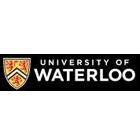- News and articles
- Find usIDP AustraliaIDP BahrainIDP BangladeshIDP CambodiaIDP CanadaIDP ChinaIDP EgyptIDP GhanaIDP Hong KongIDP IndiaIDP IndonesiaIDP IranIDP JordanIDP KenyaIDP KoreaIDP KuwaitIDP LebanonIDP MalaysiaIDP MauritiusIDP Middle EastIDP NepalIDP New ZealandIDP NigeriaIDP OmanIDP PakistanIDP PhilippinesIDP Saudi ArabiaIDP SingaporeIDP Sri LankaIDP Taiwan, ChinaIDP ThailandIDP TurkeyIDP UAEIDP VietnamIDP Corporate
- Social
- English
- Where we operate
- Courses
- Scholarships
- IELTS
- About IDP
- Student Essentials
- News and articles
- Find us
- Find us
- Find nearest IDP offices
- IDP Australia
- IDP Bahrain
- IDP Bangladesh
- IDP Cambodia
- IDP Canada
- IDP China
- IDP Egypt
- IDP Ghana
- IDP Hong Kong
- IDP India
- IDP Indonesia
- IDP Iran
- IDP Jordan
- IDP Kenya
- IDP Korea
- IDP Kuwait
- IDP Lebanon
- IDP Malaysia
- IDP Mauritius
- IDP Middle East
- IDP Nepal
- IDP New Zealand
- IDP Nigeria
- IDP Oman
- IDP Pakistan
- IDP Philippines
- IDP Saudi Arabia
- IDP Singapore
- IDP Sri Lanka
- IDP Taiwan, China
- IDP Thailand
- IDP Turkey
- IDP UAE
- IDP Vietnam
- IDP Corporate
- Social
- Language Switcher
- IDP Education /
- Colleges and Universities /
- Canada /
- University of Waterloo /
- Master of Mathematics in Co...


Location
Canada
Qualification
Masters Degree
Fees
CAD23088
(2025)
Duration
2 Year(s)
Next intake
08 May 2025
Entry Score
6.5
IELTSCourse info
Human computer interaction (HCI) focuses on the design, evaluation and implementation of interactive computing systems. In a nutshell, we make systems easier-to-use, more efficient, and more compelling. In pursuit of these goals, HCI draws upon a wide range of fields, including the behavioural sciences, social sciences, visual arts, design and engineering. Current research projects focus on crowdsourcing, citizen science, gesture-based interaction, touch input, novel applications of machine learning and information retrieval in end-user applications, and the intersection of art and HCI. HCI lab members are part of the GRAND digital media research network and we have past and ongoing collaborations with companies like Google, Pinterest and Thalmic Labs; industrial research labs like Microsoft Research, Autodesk Research, the Palo Alto Research Center (PARC), Ricoh Innovations, and Mitsubishi Electric Research Labs (MERL); institutions such as the Natural History Museum in London; and academic institutions like University of Toronto, the French Institute for Research in Computer Science and Automation (INRIA), Carnegie Mellon University, Harvard University, and University College London.
- Scholarships View all scholarships
- Internships
Entry requirements for University of Waterloo
Application Deadline
The application deadline isn't available Speak to an IDP counsellor for more detailed information
Further information
If you aren't eligible for the above entry requirements, you might ant to explore pathway options at University of Waterloo. If you want to find out more, speak to our counsellors.
THE World Ranking
163rd / 1250
THE World RankingWhat our students think
We’ve haven’t received any reviews for this institution yet.
Recommended for you
- Graduate Certificate
- Peterborough , Canada
- Next intake:09/2025
- Entry Score: IELTS 6.5
- CAD16364 (2025)
- THE World Ranking:501
- Masters Degree
- Ottawa , Canada
- Next intake:09/2025
- Entry Score: IELTS 6.5
- CAD30981 (2025)
- THE World Ranking:501
- Masters Degree
- Ottawa , Canada
- Next intake:05/2025
- Entry Score: IELTS 6.5
- CAD30981 (2025)
- Graduate Certificate
- MILTON , Canada
- Next intake:05/2025
- Entry Score: IELTS 6.5
- Graduate Certificate
- Brantford , Canada
- Next intake:05/2025
- Entry Score: IELTS 6.5
- CAD15383 (2025)
- Graduate Certificate
- London , Canada
- Next intake:05/2025
- Entry Score: IELTS 6.5
- CAD15202 (2025)
- Graduate Certificate
- MILTON , Canada
- Next intake:05/2025
- Entry Score: IELTS 6.5
- CAD15383 (2025)
- Graduate Certificate
- Cambridge , Canada
- Next intake:05/2025
- Entry Score: IELTS 6.5
- CAD15383 (2025)
Your action plan
Step 1
Shortlist your courses
Choose the best three courses you’re most likely to pursue.
Step 2
Check your eligibility
Get an instant in-principle offer for courses with the IDP FastLane tag.
Step 3
Apply through IDP Live
Fill out the form once and use it to apply to multiple courses.
How does IDP FastLane work?
With the FastLane 'Offer in Principle', you'll know in minutes if you'll be accepted!
Select an institution and course
Create your academic profile
Submit your application for an 'Offer in Principle'
Your chosen institution(s) will send you a decision in minutes!
Get ready to apply with an expert counsellor




